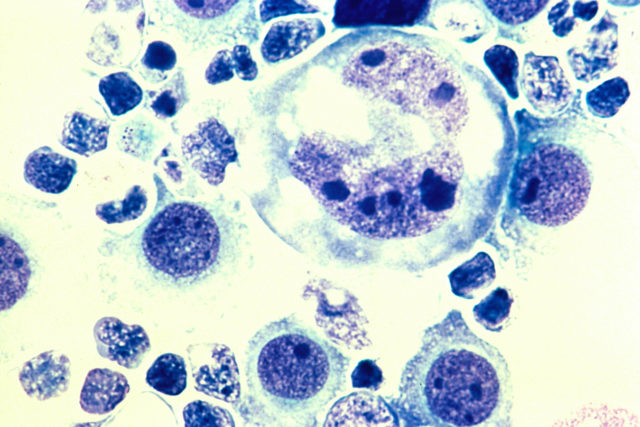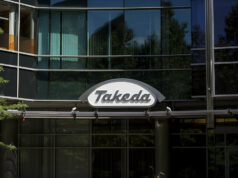
Cancer cell therapy research is advancing toward off-the-shelf products that overcome some of the logistical challenges of timely manufacturing and dosing of these complex biological treatments. Adicet Bio is using a different type of immune cell that it says is better suited to the task, and an early look at the first clinical test of its lead candidate is showing promise in addressing cancerous B cells.
Of the four patients who could be evaluated as of the Nov. 22 cutoff, three showed responses to the treatment, ADI-001, Adicet reported on Monday. Two of those patients achieved a complete response. The one partial response was characterized by clinical trial investigators as a “near complete response.” These early data are a small sample from a Phase 1, dose-escalation study, but the results so far offer a sign that Adicet’s approach could work. Investors showed their own response to the results, boosting the biotech’s stock to a $13.65 open on Monday, a nearly 40% jump from Friday’s closing price.
Boston-based Adicet’s approach to cell therapy starts with gamma delta T cells, which stands in contrast to much of the cell therapy field, which is working with alpha beta T cells. Gamma delta T cells represent a much smaller percentage of the T cells in circulation, but Adicet contends these cells have the capability to last longer following the initial treatment. Furthermore, not only do these cells have the ability to recognize and kill circulating tumor cells, but they can also infiltrate and kill solid tumors—a capability that eluded autologous CAR-T therapies, the first generation of cancer cell therapies, which are made from a patient’s own T cells. Beyond better anti-tumor activity, Adicet aims said a gamma-delta cell therapy may offer safety advantages.
Adicet sources its gamma delta T cells from the blood of healthy donors. These cells are engineered with a chimeric antigen receptor (CAR) that target a specific protein, as well as a T cell receptor-like antibodies that offer another targeting mechanism. ADI-001 is designed to target the CD20 a protein on the surface of cancerous B cells. After those cells are multiplied using a proprietary process, they are stored until needed to treat patients. According to Adicet, one batch of its off-the-shelf product can treat up to 1,000 patients.
Though Adicet claims its approach can work on solid tumors, the company’s first disease target is a blood cancer: B-cell non-Hodgkin lymphoma. The therapy is currently in an open-label Phase 1 study enrolling adults with B cell cancers that have relapsed or have not responded to at least two earlier treatments. The targeted enrollment is 75 patients.
In an investor presentation, Adicet said that the patient who achieved a complete response at dose level one is a 75-year-old man with diffuse large B-cell lymphoma that had not responded to five earlier treatments, including a CAR-T therapy. The second complete response was in a 62-year-old man with mantle cell lymphoma that had also not responded to five earlier treatments. Adicet reported that the ADI-001 cells proliferated and multiplied in these patients. An increase in the signaling proteins that trigger an immune response was also observed, which is another sign of anti-tumor activity.
In the results so far, patients have tolerated the Adicet cell therapy well. There were no signs of with graft-versus host disease, neurotoxicity, or cytokine release syndrome—all of them risks of CAR-T therapies. Adicet expects its next clinical update will happen in the first half of 2022.
Adicet’s competition in the pursuit of off-the-shelf cancer cell therapies includes Allogene Therapeutics, a company that had begun multiple trials testing cell therapies from T cells sourced from healthy donors. In October, after a “chromosomal abnormality” was reported in one patient in a Phase 1 study, the FDA put a clinical hold on all of Allogene’s clinical trials. Other companies developing allogeneic cancer cell therapies include Atara Biotherapeutics, Cellectis, Fate Therapeutics, and Gilead Sciences.
Public domain image by the National Cancer Institute








